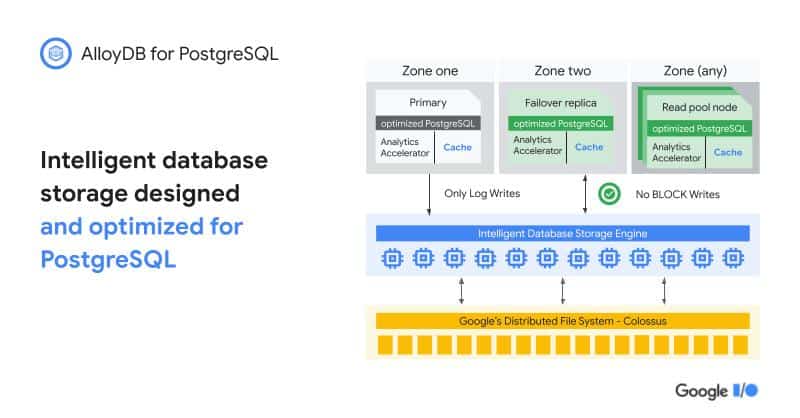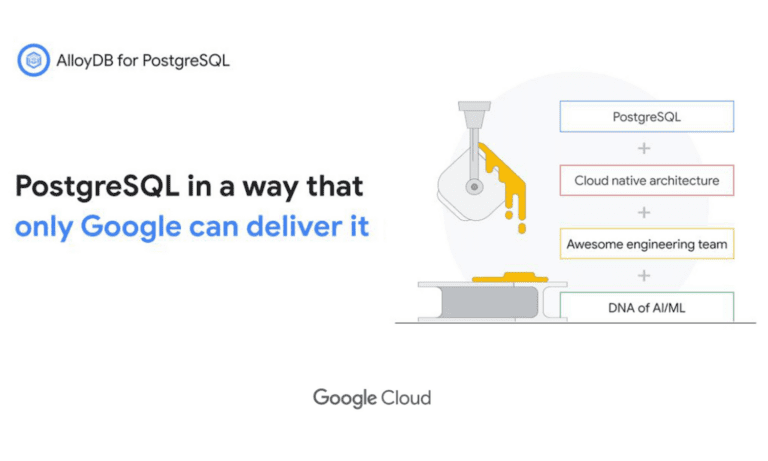Google Cloud recently introduced AlloyDB, a managed, PostgreSQL-compatible database service. The open-source database service is suited for key enterprise workloads.
By introducing the managed open-source database service, Google Cloud aims to compete with similar services from Oracle and AWS. According to the public cloud giant, companies are increasingly looking to replace legacy tools with cloud-based open-source database services. Especially to avoid vendor lock-in and ‘unfriendly’ licensing conditions.
When using open-source database systems, running important workloads can still be quite challenging when it comes to performance and managing application availability. That’s where AlloyDB comes in.
The tech
The managed data service combines Google Cloud services with the PostgreSQL ecosystem, including full compatibility with PostgreSQL 14, which allows companies to more easily migrate existing PostgreSQL applications without code changes.
The managed database service is built on top of the open-source PostgreSQL database management system. The service is supported by the various Google Cloud computing and storage services. The service also integrates with the various analytics and AI services provided by Google Cloud.

In addition, the database service is supported by an intelligent database-optimised storage service. This storage service provides predictable performance and allows data management to scale without difficulty. In addition, AlloyDB is accelerated with built-in AI, machine learning and analytics. Automatic data tiering is supported.
Performance
According to the public cloud giant, AlloyDB delivers high performance compared to competitors’ database solutions. For example, the service is said to deliver analytical requests up to 100 times faster than a standard PostgreSQL database environment. This is done using a so-called ‘vectorised columnar accelerator’ for storing data-in-memory. This is particularly useful for applications like business intelligence, reporting and transactional or analytical workloads.
In addition, the database service is up to four times faster for transactional workloads than standard PostgreSQL databases, including AWS Aurora. This is partly due to multiple caching layers that are automatically scaled based on workload patterns.
AlloyDB also guarantees 99.9 percent uptime. Database patching, backups, scaling and replication are handled automatically based on algorithms in AlloyDB’s autopilot system.
AlloyDB is now available in preview. General availability is expected in the second half of this year.
